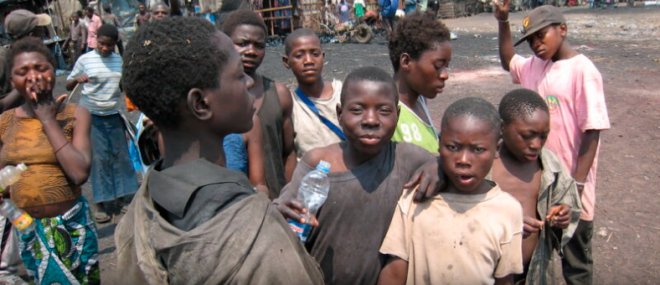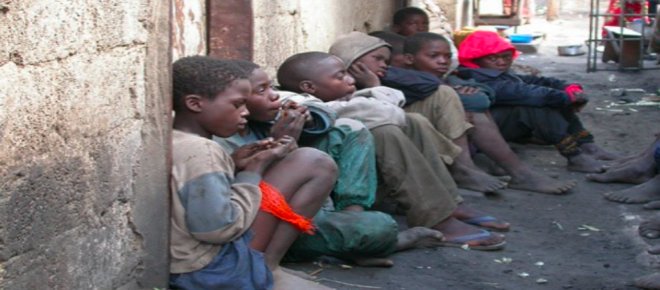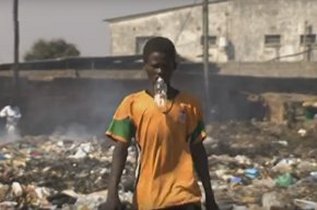|
|
|
Zambia Street Children |
Zambia Street Children |
Zambia Street Children | Zambia Street Children |
Bana Tandizo, which means 'helping children', supports some of the poorest children in Zambia
Visit >
Explore
all about the African nation of Zambia in profile articles, pictures, videos
and images.
More >
|
|

|
When fathers in particular fall ill, the family income can drop to nothing in a country where over 50% earn less than the international poverty line and, without a social safety net, many children turn to the streets simply to survive or are driven into urban areas after the loss of both parents. As one 15-yr-old Zambian boy stated, "I [have] lived like this since [my] parents died. I sleep in ditches. If I see people carrying plastic bags, I ask to help. They give anything, maybe 1,000 kwacha [UK 18p], maybe more." As with many children who turn to life on the streets, many seek solace in blocking out the physical and emotional pain by turning to substance misuse. In Zambia one such form of abuse highlights just how desperate their plight is. While many street children in Lusaka spending their nights sleeping around the Intercity bus station, North-Mead market, and town centre as well as under railway bridges, during the day they will visit sewage ponds and fill plastic bottles with raw sewage. In the heat the sewage ferments to form what is known locally as 'Jenkem', a methane based substance which can then be inhaled causing hallucinations. As one 16-yr-old boy reported, "With glue, I just hear voices in my head, but, with Jenkem, I see visions. I see my mother who is dead and I forget about the problems in my life." Others sniff 'stika', a jet fuel based substance.
One young person who underwent the process lamented, "If they [government] want me to leave [the streets], let them also give me job. They take me to camp, they teach me English, they teach me to make beds, to make chairs; but they don't give me a job after. They give me tools. I sold them for a cheap price. So, I have come back to start begging again, nothing has changed. I have no supporter [sponsor], I beg to live." The video (left) gives some insights into the lives of street children in Zambia together with projects and programs operating there that you may choose to support. |









 The government, together with NGOs, have acknowledged the extent of the problem with the Zambian Ministry of Community Development and Social Services (MCDSS) in 2018 launching the 'Efficiency and Effectiveness for Vulnerable Children and Adolescents Initiative (SEEVCA) programme' in 15 districts in Zambia. More recently they have started placing some of the street children into training centres run by the Zambia National Service where, according to the Zambian government, "When they complete their training, they will be awarded with Certificates and provided with start-up tools and materials needed for them to excel in the businesses that will help them put their skills into practice". However the programs are short lived and most of the children return to the streets having no where to peddle any skills gained in an economy where, in 2020, the estimated youth unemployment rate in Zambia was at 22.63%, much higher in urban areas and for those who haven't any, or limited, education.
The government, together with NGOs, have acknowledged the extent of the problem with the Zambian Ministry of Community Development and Social Services (MCDSS) in 2018 launching the 'Efficiency and Effectiveness for Vulnerable Children and Adolescents Initiative (SEEVCA) programme' in 15 districts in Zambia. More recently they have started placing some of the street children into training centres run by the Zambia National Service where, according to the Zambian government, "When they complete their training, they will be awarded with Certificates and provided with start-up tools and materials needed for them to excel in the businesses that will help them put their skills into practice". However the programs are short lived and most of the children return to the streets having no where to peddle any skills gained in an economy where, in 2020, the estimated youth unemployment rate in Zambia was at 22.63%, much higher in urban areas and for those who haven't any, or limited, education.


